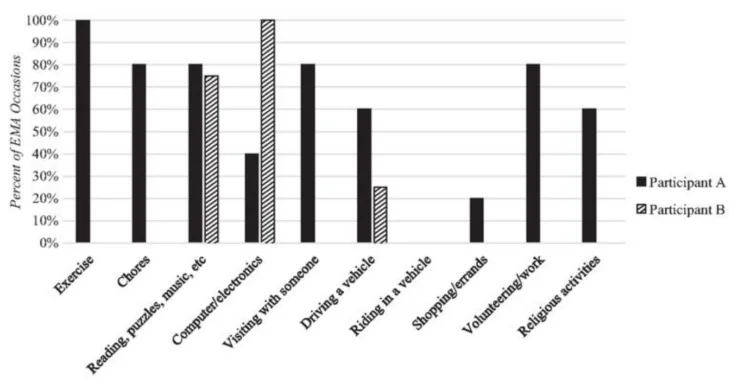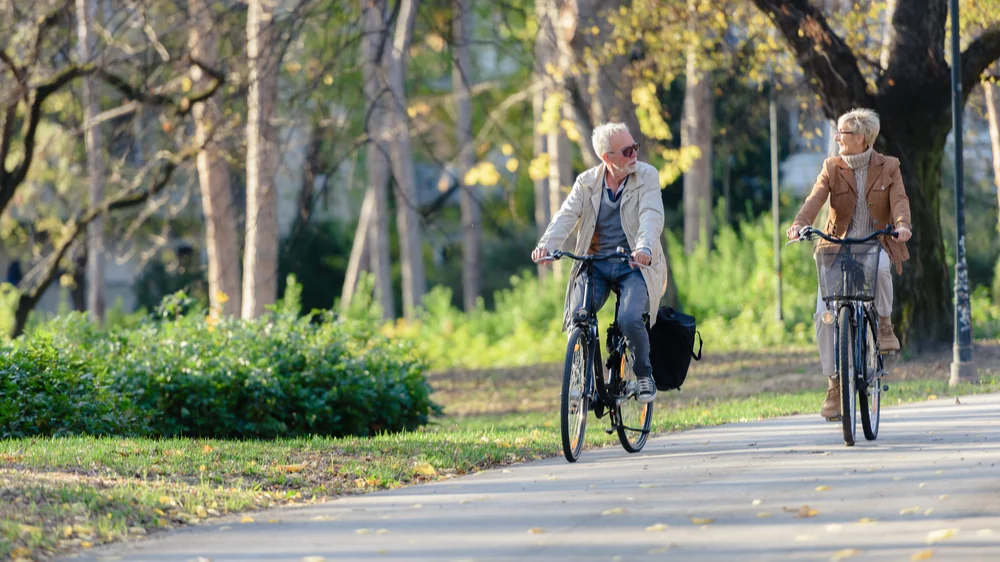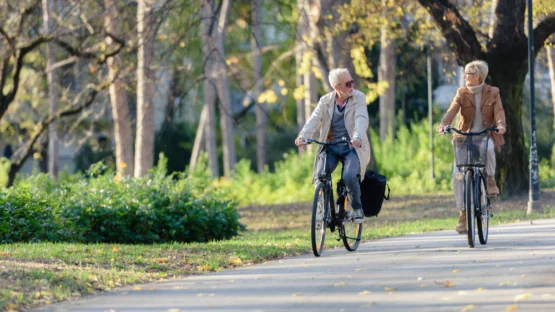A new study suggests that greater diversity of everyday activities is associated with a slower rate of age-related cognitive decline, independently of the amount of physical activity [1].
Variety or quantity?
It is widely accepted that being cognitively and socially active can slow down age-associated cognitive decline. Scientists also generally agree that the range of activities matters as well: the more you diversify them, the slower the decline [2]. Varied daily activities make people switch between tasks and adapt to new settings, which, as one study found, is likely to stimulate the hippocampus [3], a crucial brain area responsible for navigation, learning, and memory. Another study found a link between activity variety and actual hippocampal volume [2].
However, what if the effect is explained by more diverse activities being more physically demanding? After all, greater physical activity is also associated with slower cognitive decline [4]. Whether better physical shape produces the diversity of activities, or vice versa, it is possible that the relationship that is observed with cognitive function is driven by the level of physical activity rather than by the diversity of cognitive and social activities.
Diversity seems to matter
In this new study, the researchers attempted to answer this question by studying 252 community-dwelling (that is, not living in an institution) elderly adults with a mean age of 74 years. The participants completed a battery of cognitive tests at baseline and then self-reported their participation in ten common types of activity, such as reading, chores, and social visits, every three hours for five or six days. At the same time, the actual levels of their physical activity were recorded by wearable accelerometers. Results were controlled for age, sex, racial/ethnic minority status, marital status, education, self-rated health, depressive symptoms, and, interestingly, extroversion.
The researchers provide an example of how the ten daily activities they monitored differed for two of the study’s participants:

The main upshot is that greater diversity in daily activities was indeed associated with better overall cognitive functioning. Moreover, the effect size was similar to that of education, which, although possibly mediated by income, is a potent predictor of the rate of cognitive decline [5]. Interestingly, movement duration and step count did not show association with cognitive function.
Insights into the life of the elderly
The study also provided some interesting insights into the daily activities of the elderly. For example, chores and using computer or other electronic devices were the most common activities, with volunteering, work, and religious activities being the least common.
Average daily activity diversity did not differ between men and women, and it was greater among participants who were married or partnered. Importantly, activity diversity was substantially greater among non-Hispanic Whites compared to racial/ethnic minorities, despite movement duration and step count being mostly similar between the two groups.
This study features an interesting and compelling design but also has some serious limitations. For example, the authors did not control for income, which is known to be highly correlated with age-related cognitive decline and could at least partially explain the difference between minorities and non-minorities in this study.
While the study found no correlation between levels of physical activity and cognitive decline, the average daily step count was unusually low, which might have affected the results. Finally, it would be interesting to see longitudinal measurements of cognitive function. With the advance of commercially available wearable devices, setting up such studies should become increasingly easier.
Humans need to stay both mentally and physically active. DeYoung (2015) further asserts that the need to explore and adapt is fundamental for the health of any complex organism. The present study provides clarity to the complex question of how to best stay mentally active. People must constantly adapt to their world, even when engaged in routine activities that provide structure and meaning to daily life. The present study suggests that even daily routine activities, if combined with each other in a rich and balanced schedule, are related to higher levels of cognitive functioning that cannot be explained by the physical activity that accompanies these activities.
Literature
[1] Brown, C. J., Jeon, S., Ng, Y. T., Lee, S., Fingerman, K. L., & Charles, S. T. (2023). Switching it up: Activity diversity and cognitive functioning in later life.Psychology and Aging. Advance online publication.
[2] Urban-Wojcik, E. J., Lee, S., Grupe, D. W., Quinlan, L., Gresham, L., Hammond, A., … & Schaefer, S. M. (2022). Diversity of daily activities is associated with greater hippocampal volume. Cognitive, affective, & behavioral neuroscience, 1-13.
[3] Aronov, D., Nevers, R., & Tank, D. W. (2017). Mapping of a non-spatial dimension by the hippocampal–entorhinal circuit. Nature, 543(7647), 719-722.
[4] Sofi, F., Valecchi, D., Bacci, D., Abbate, R., Gensini, G. F., Casini, A., & Macchi, C. (2011). Physical activity and risk of cognitive decline: a meta‐analysis of prospective studies. Journal of internal medicine, 269(1), 107-117.
[5] Zahodne, L. B., Stern, Y., & Manly, J. J. (2015). Differing effects of education on cognitive decline in diverse elders with low versus high educational attainment. Neuropsychology, 29(4), 649.




